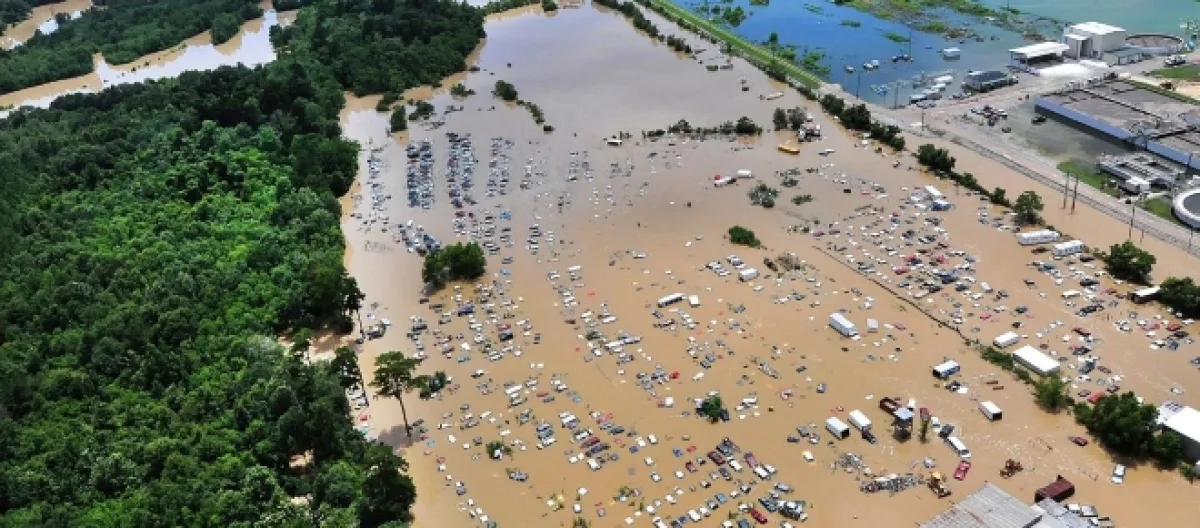Dr. Roger Pielke Jr. has a message for anyone linking climate change with the Louisiana floods: it’s irresponsible and not based on science. He even produced multiple graphs showing a downward trend for these heavy precipitation events.
A professor in the Environmental Studies Program at the University of Colorado, Pielke has been at the forefront of the global warming debate for over a decade.
As a climate expert, he’s even testified before Congress on extreme weather events and written a book on disasters and climate change.
Flooding events are down
“Flood disasters are sharply down,” Pielke tweeted on August 23, “U.S. floods are not increasing either.” Pielke was shocked after reading a NY Times editorial by Paul Krugman who blamed global warming for the Louisiana floods.
“How does Krugman get away with this?” he tweeted with a graph clearly showing a downward trend in U.S. flood damage. Al Gore, NBC’s Al Roker, and Green Party candidate Jill Stein have all tried to blame the recent flooding on climate change, despite their statements being in direct conflict with the actual data as illustrated at Climate Depot:
Was overdevelopment key factor?
Andrew Revkin, who runs the Dot Earth blog at the NY Times, noted that many areas of Louisiana that were once covered by land, trees, and swamp are now covered by strip malls and roadways.
This prevents water from seeping into the ground as it had in the past.
Ground that wasn’t covered over by cement and asphalt was already soaked before the heavy rains began, which led to even more flooding. Revkin says, "Southern Louisiana is implicitly warm and moist,” adding it has a lot of lowlands and swamps.
The state has also experienced rapid growth in the last decade, which has paved over areas with new cement and asphalt. Revkin says these paved-over surfaces plus heavy rainfall have contributed to the flooding. Prof. Pielke says that blaming climate change for a “proliferation of disasters like the one in Louisiana” is irresponsible and doesn't reflect the downward trend for U.S. floods.
Fewer floods occurring
While Pielke understands that floods do ‘suck’ when they occur, there is a silver lining: Flood damage in the U.S. is dramatically down over the last seven decades. Pielke also cautioned the media and climate activists that disasters can happen at any time and that long-term trends are based on data, and not on the hype as illustrated in Krugman’s alarmist editorial.
Extreme weather reports
Pielke says that since he started covering disasters in the U.S., he has watched the arguments range from droughts are on the rise to droughts are not increasing but getting worse. Except they aren’t. Even the United Nation’s Intergovernmental Panel on Climate Change (IPCC) has said there is no trend showing an increase in extreme weather events, despite the wishful thinking of climate activists like Krugman and Gore.
Two recent studies support Pielke’s contention that flooding is unrelated to climate change. One study from scientists at the University of Iowa shows no link to increased precipitation and global warming, and another study by the National Oceanic and Atmospheric Administration (NOAA) showed no evidence that changes in extreme rainfall could be attributed to climate change in the observed record.
Hurricane and tornado drought
Pielke also pointed out that extreme weather events like hurricanes and tornadoes are on the decline in terms of strength and numbers. The U.S. has seen record low tornadoes in the last decade, and the United States hasn’t seen a Category 3 or higher hurricane make landfall since 2005 (11 years). As larger numbers of people concentrate in once-uninhabitable areas, these so-called extreme weather events are causing more damage even though the frequency and intensity are trending down.
